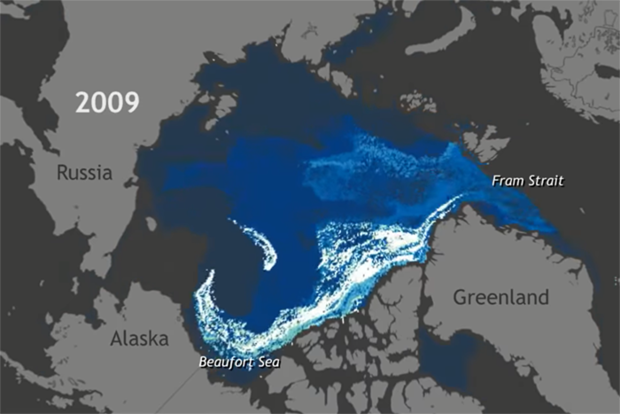By the early 21st century, young, thin, melt-prone ice had come to dominate the Arctic Ocean. Credit: NOAA Climate.gov / Mark Tschudi
An ice-free Arctic summer would be a major indication of global change with dramatic impacts, but model projections of when this will occur remain notoriously uncertain. The latest generation of global climate models (CMIP6) project the Arctic’s first ice-free summer could occur anywhere from 2015 to well past 2100. Funded in part by the NOAA Climate Program Office’s Climate Variability and Predictability (CVP) and Modeling, Analysis, Predictions and Projections (MAPP) programs, new research helps tackle this uncertainty. Based on the research team’s approach, their findings show that the Arctic could experience its first fully ice-free summer by 2040. The study is published as an early online release in Environmental Research Letters.
Read more at the link below.
